On April 2, 2025, the Institute for Global Health and Development of Peking University successfully held a high-end academic dialogue at the Peking University Science Park, moderated by Dr. Bernhard Schwartlander, a distinguished senior research professor who recently joined the Global Health Development Institute of Peking University on a full-time basis. The special guests will be leading global health scientists Sir Peter Baron Piot and Heidi J. Larson, PhD, for a dialogue on "From Bushvirus Tracking to Negotiating with Heads of State - Achieving Healthy symbiosis between people and the planet."
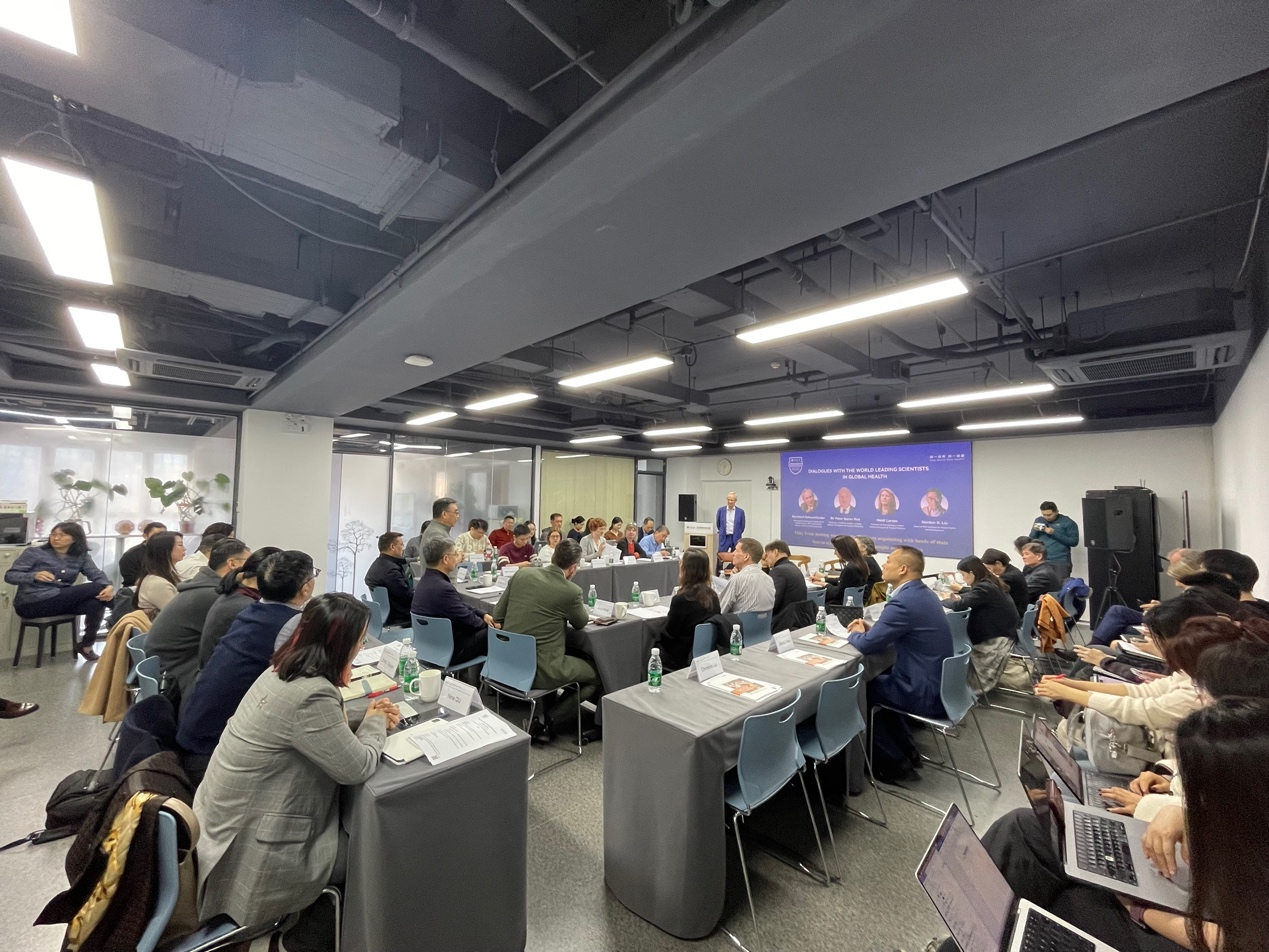
Activity content and discussion
The dialogue attracted domestic experts from the fields of global health and public health, international foreign guests and business leaders, as well as some teachers and students representatives of Peking University. Professor Gordon G. Liu, dean of the Institute of Global Health Development of Peking University, pointed out in his welcome speech that global health is facing challenges such as the novel coronavirus epidemic, climate change, and the emergence and recurrence of infectious diseases, which require interdisciplinary and cross-field collaborative innovation. He stressed that the Institute is committed to building a Chinese plan for global health governance, aiming to build a platform for dialogue between Chinese and foreign experts and promote the deep integration of scientific discovery and policy practice.
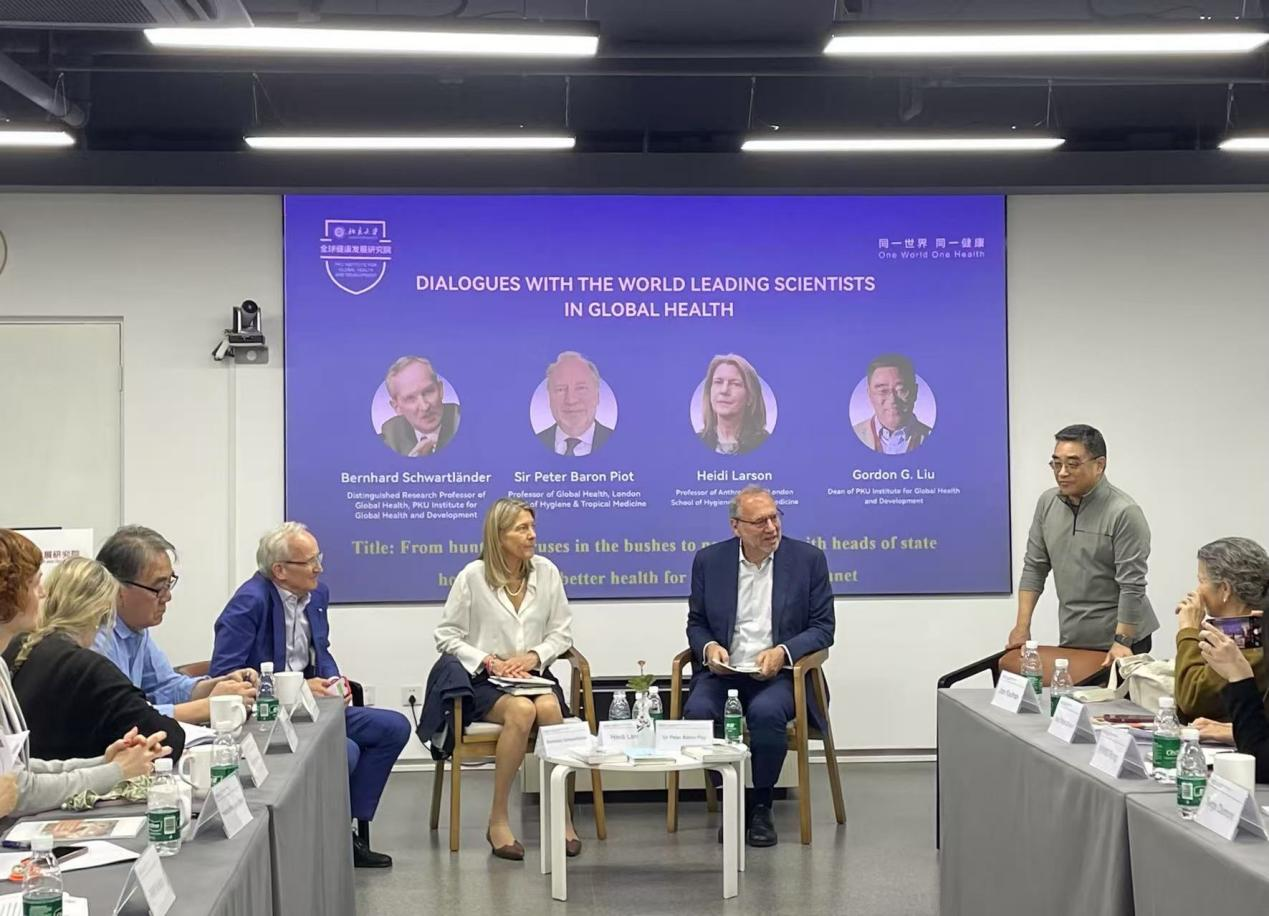
Participants held in-depth discussions on global health challenges, vaccine trust, infectious disease prevention and control, and international health cooperation. Sir Peter Baron Piot shares the signature virus-tracking experience of his career, recalling the painstaking process of first isolating Ebola in the Democratic Republic of the Congo in 1976 and stressing the importance of "listening to communities" in early public health investigations. Addressing HIV/AIDS, he noted that from "linking disease to economic security" to promoting global access to HIV/AIDS drugs, the combination of scientific evidence and political commitment is key to combating the epidemic. In particular, he mentioned that China's vaccine research and development capability and the resilience of its public health system during the COVID-19 epidemic have provided important lessons for the world.
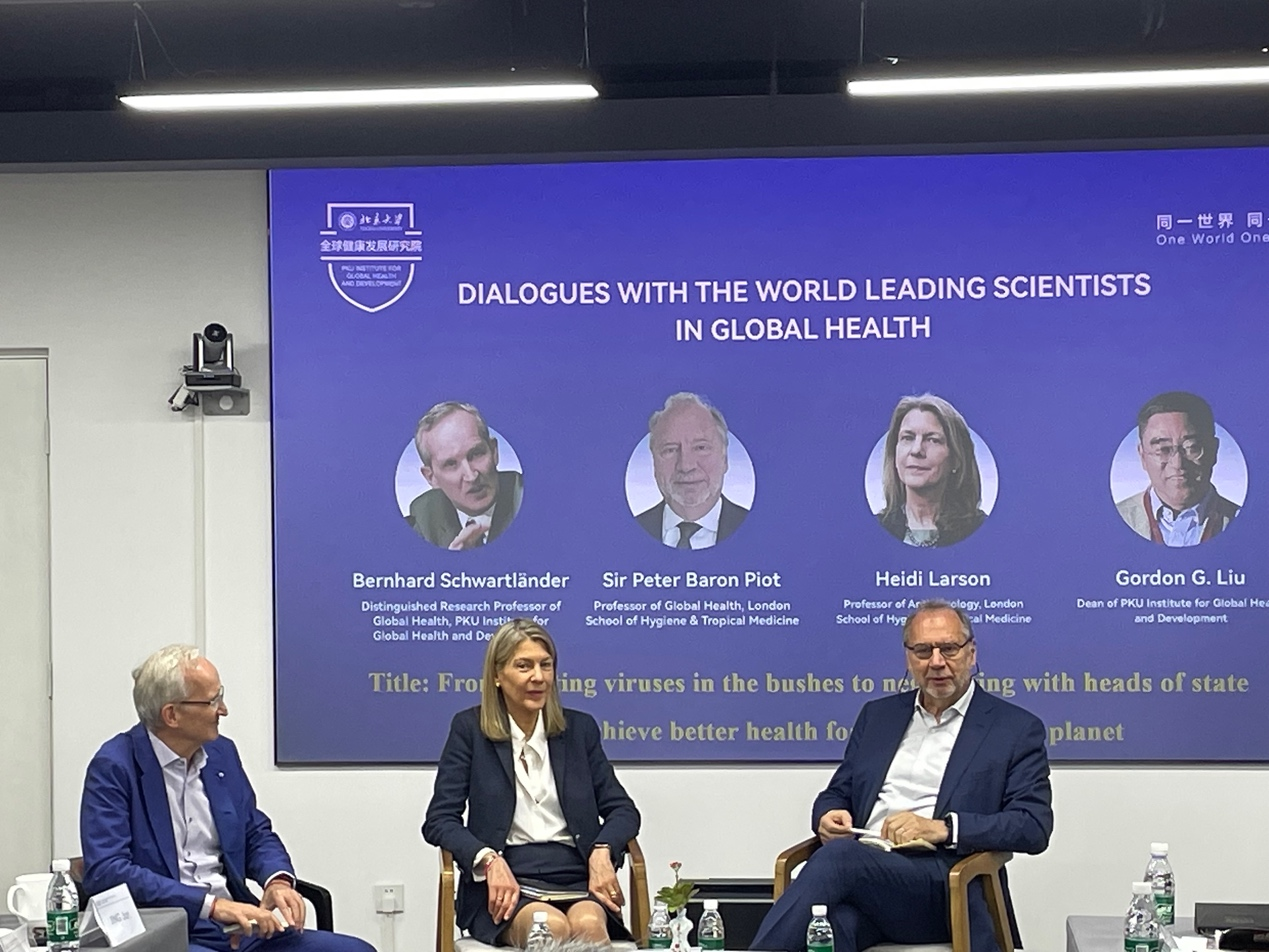
Heidi J. Larson, PhD, focuses on the link between vaccine hesitation and sociocultural factors. Through the case of the South Pacific region, she reveals the impact of religion and gender power structures on the acceptance of public health policies, emphasizes that "technological solutions need to be embedded in social context", and warns that global health governance in the post-pandemic era needs to be vigilant against the rise of populism and anti-science trends, and calls for the establishment of more inclusive risk communication mechanisms.
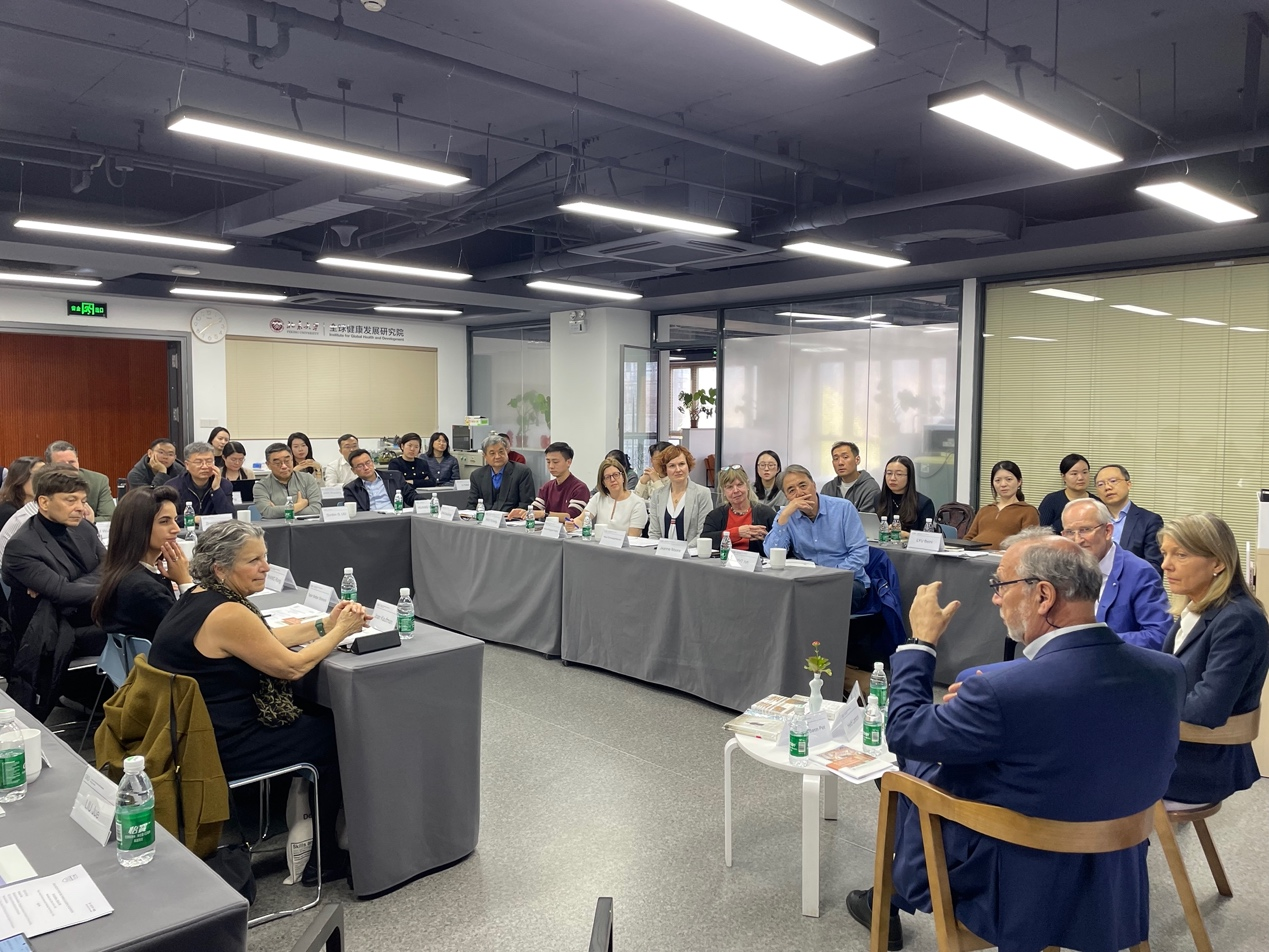
In an open dialogue session, experts focused on lessons learned from the COVID-19 pandemic. Sir Peter Baron Piot mentioned that while the rapid development of mRNA vaccines was a "landmark achievement", the unequal distribution of vaccines around the world exposed the fragility of international cooperation. He called for regional manufacturing capabilities to reduce reliance on a single supply chain. Heidi J. Larson, PhD, adds that the post-pandemic crisis of public trust and information overload is cause for alarm: "Social media has amplified anti-science sentiment, and we must rethink how we build effective dialogue with the public."
During the discussion on "Global health and planetary health", experts agreed that the traditional disease-centered model is no longer able to meet the current challenges, and the need to move to a "planetary health" perspective that deeply integrates human health with ecosystem protection and climate change response. In particular, Sir Peter Baron Piot pointed out that China's practice in areas such as air quality improvement and carbon neutrality targets provides a replicable experience for developing countries, and recommended that China further play a role as a "South-South cooperation" link to promote technology sharing and capacity building.
Addressing global health system reform, Heidi J. Larson, PhD, stresses the importance of "de-Occidentalism" and calls for agenda-setting mechanisms led by recipient countries. She cited the African Union's experiment in vaccine production as an example of how regional collaboration and indigenous innovation are key to improving global health equity. She suggested integrating the resources of existing multilateral institutions and pushing for reform of the governance structures of institutions such as the World Health Organization (WHO) to better reflect the voices of emerging economies.
Closing and prospect
Zhang Haibin, deputy dean of the Institute for Global Health and Development of Peking University, said in his closing speech that the dialogue is not only a collision of ideas, but also a starting point for concerted action. The Institute will continue to give full play to the university's multidisciplinary advantages, deepen its layout in the research fields of global health policy, infectious disease prevention and control, and health technology evaluation, and help China assume greater responsibilities in global health governance.
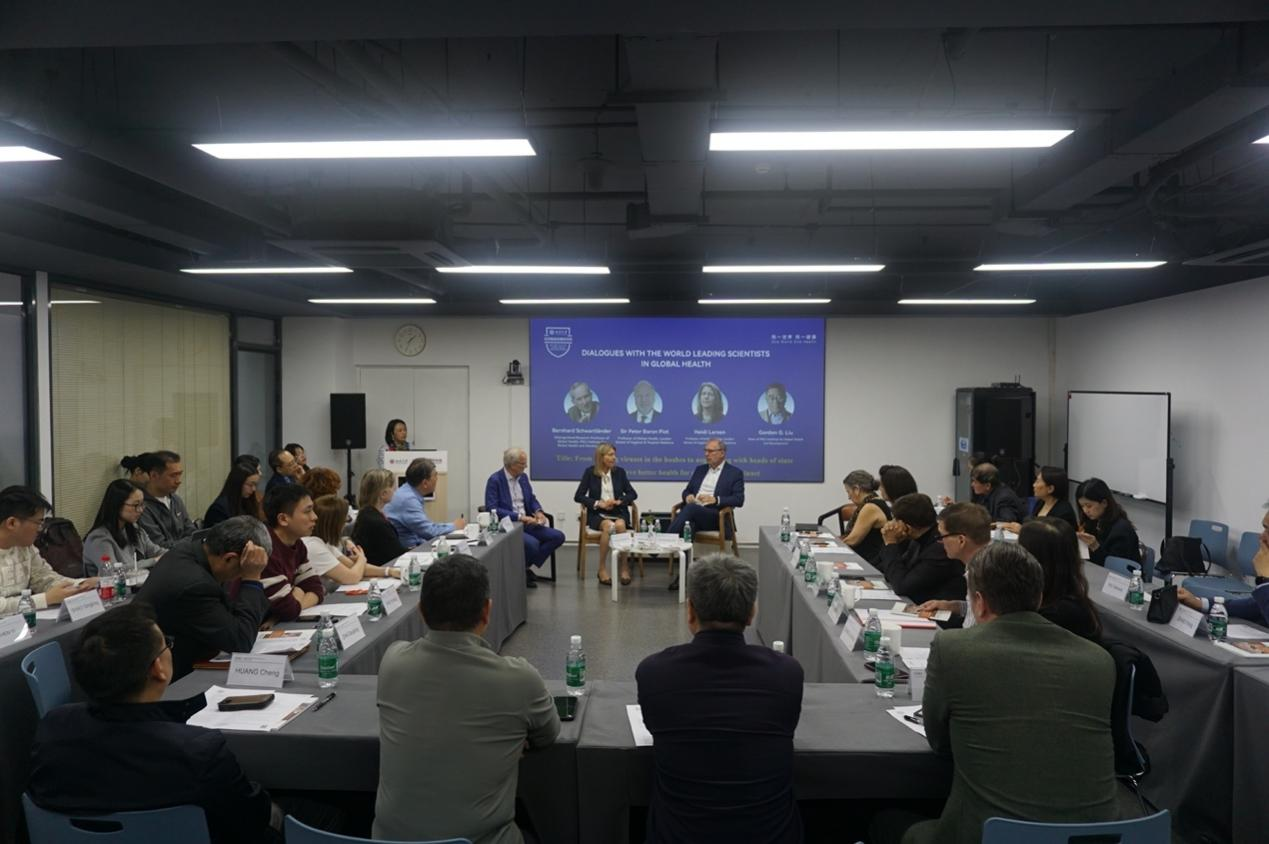
Resume of scientist
Sir Peter Baron Piot is Professor of Global Health, former Director of the London School of Hygiene and Tropical Medicine (2010-2021), Senior Advisor to the Gates Foundation, and visiting Professor at the University of Levene and the National University of Singapore. He served as Special Adviser on health and security to European Commission President Ursula von der Leyen (2020-2024) and was the founding Executive Director of UNAIDS and UN Under-Secretary-General (1995-2008), during which time he worked closely with China. He was involved in the discovery of the Ebola virus in 1976 and has led research on HIV, women's health and infectious diseases. He is Chair of the Pasteur Network Strategy Committee (Paris), Chair of the PREPARE and PrepVax Advisory Groups in Singapore, Chair of the Global Burden of Disease Study at the University of Washington, and Vice Chair of GHIT in Tokyo. He was a founding board member of the Vaccine Alliance (CEPI) and the Global Foundation to fight AIDS, Tuberculosis and malaria. He was created a baron in his native Belgium and received a British Knighthood and the Japanese High Ribbon of the Rising Sun. His awards include Canada's Gairdner Award for Global Health, the Robert Koch Gold Medal, the Prince Mahiddon Award, the Noguchi Hideki Africa Award, the Nelson Mandela Prize for Health and Human Rights, the World Health Organization Lifetime Achievement Award, and he was named Time Magazine's Person of the Year in 2014. He has published more than 650 scientific articles and 17 books, including No Time to Lose, which has been translated into five languages, including Chinese.
Heidi J. Larson, PhD, is Professor of anthropology, Risk and decision sciences at the London School of Hygiene & Tropical Medicine (UK); Clinical Professor, Institute for Health Metrics and Evaluation (USA), University of Washington, Seattle; And visiting professor at the University of Antwerp and the University of Leven in Belgium. Professor Larson is the founding director of the Vaccine Trust Project, where her research focuses on risk management and trust building from trial to delivery, as well as building public collaboration in emergency situations. She currently leads a new Lancet commission looking at the emotional determinants of health. Professor Larson previously led the new vaccine roll-out strategy and communication for UNICEF's Global Immunization Program, chaired the advocacy Working group for Gavi, the Global Alliance for Vaccines, and was a member of the World Health Organization's (WHO) Vaccine Hesitancy Working Group (SAGE). Professor Larson is the author of Stuck Here: How Vaccine Rumors Started - and Why They Won't Go Away (Oxford University Press, 2020). In 2021, she was named one of the 100 most influential Women in the world by the BBC and won the Edinburgh Science Prize 2021.